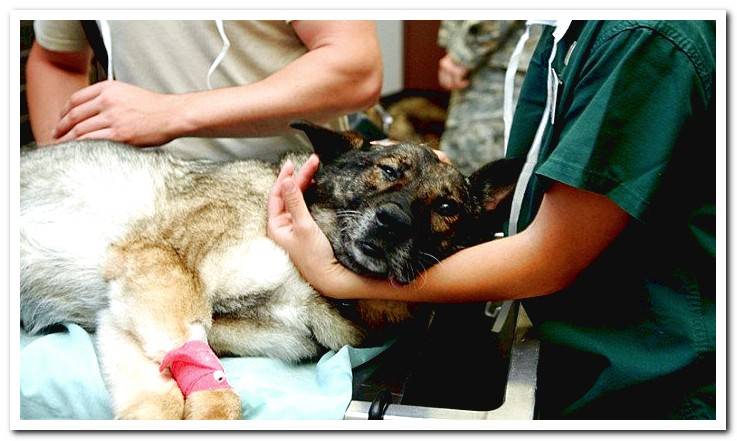
The evolution of animal medicine, known as veterinary medicine, allows us to have great treatments for cancer in dogs today, with widely positive results. However, it cannot be fully guaranteed that the treatment will be effective, it will depend to a great extent on the dog’s state of health and when the cancer has been detected.
Each type of cancer has a different treatment, so it is essential that a vet tests our dog and determines what type of cancer it has. In this way you will be able to know which is the most appropriate treatment for it, from breast cancer to skin or bone cancer, without forgetting the well-known lymphomas.
Index of contents
- 1 Treatments for Cancer in dogs: Radiotherapy
- 2 Treatments for Cancer in Dogs: Chemotherapy
- 3 Treatments for Cancer in Dogs: Surgery
Treatments for Cancer in dogs: Radiotherapy
Radiotherapy consists of introducing our dog to a machine that emits high doses of radiation. Very similar to that used for X-rays, but in much higher doses.
This is intended to make proton beams destroy or damage cancer cells that are affecting our dog. It is a non-invasive but highly radioactive therapy, only recommended for advanced cancer cases.
It is usually administered every day for several weeks until the veterinaryn ends the treatment, sometimes several radiotherapy treatments are performed, leaving a few months of rest between them.

Treatments for Cancer in Dogs: Chemotherapy
As we all know chemotherapy consists of introducing chemicals into the body in order to neutralize and kill cancer cells. However, chemotherapy can harm our dog’s body more than it already is, it is a very powerful medication, so much so that not only can it cure cancer but it can also damage the kidneys and the immune system of the dog’s organisms.
Depending on the type of cancer, chemotherapy it is applied intravenously or by medication in capsules / tablets. Chemotherapy treatments usually last about two to three weeks, with rest intervals before repeating.
It will be the vet who indicates how many chemotherapy sessions our dog needs to ensure his recovery.

Treatments for Cancer in Dogs: Surgery
The removal of malignant tumors or areas affected by cancer cells is in most cases the primary need. It is not even considered an option on many occasions since without the removal of anything the other treatments will be useful.
Some types of surgery are simple and present little danger to the health of our dog, such as the removal of a small breast cancer. But others are more complex and the simple operation can already pose a great risk to dog health.
If your vet recommends you operate on your dog to remove a tumor, do not hesitate, it tells you because it is absolutely necessary for it to recover.
In addition to veterinary treatment, we can put into practice a series of habits that can help prevent and cure cancer:
- Tips to avoid cancer in dogs.
Share this information on your social networks, so that more people can see what kind of fruit they can give their puppies. Thanks 🙂
